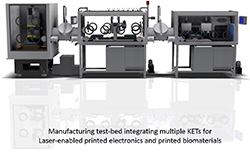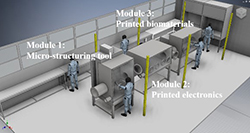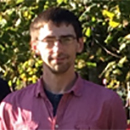-
Courses

Courses
Choosing a course is one of the most important decisions you'll ever make! View our courses and see what our students and lecturers have to say about the courses you are interested in at the links below.
-
University Life

University Life
Each year more than 4,000 choose University of Galway as their University of choice. Find out what life at University of Galway is all about here.
-
About University of Galway

About University of Galway
Since 1845, University of Galway has been sharing the highest quality teaching and research with Ireland and the world. Find out what makes our University so special – from our distinguished history to the latest news and campus developments.
-
Colleges & Schools

Colleges & Schools
University of Galway has earned international recognition as a research-led university with a commitment to top quality teaching across a range of key areas of expertise.
-
Research & Innovation

Research & Innovation
University of Galway’s vibrant research community take on some of the most pressing challenges of our times.
-
Business & Industry

Guiding Breakthrough Research at University of Galway
We explore and facilitate commercial opportunities for the research community at University of Galway, as well as facilitating industry partnership.
-
Alumni & Friends

Alumni & Friends
There are 128,000 University of Galway alumni worldwide. Stay connected to your alumni community! Join our social networks and update your details online.
-
Community Engagement

Community Engagement
At University of Galway, we believe that the best learning takes place when you apply what you learn in a real world context. That's why many of our courses include work placements or community projects.
Key Enabling Technologies (Structured MSc)
Course Overview
Key Enabling Technologies are recognised by the European Union to be the building blocks for future product and process technologies. Europe’s future competitiveness depends on how its labour force will apply and master the fusion of two or more key enabling technologies on advanced manufacturing test-beds. This interdisciplinary programme prepares technologists for this societal challenge.
The six key enabling technologies are:
- Photonics
- Advanced Materials
- Industrial Biotechnology
- Advanced Manufacturing
- Nanotechnology
- Micro- / Nano- electronics
The MSc programme provides students with structured training in Scalable Innovation and Laser-enabled bioprinting. This training is underpinned by advanced courses in Optical Design, Advanced Materials, and Tissue Engineering. The programme is particularly focused on digital additive and subtractive processes—targeting personalised medical devices and sensors—pivotal for addressing future key healthcare challenges. Students will gain hands on experience on state of the art manufacturing research platforms enabling them to demonstrate their research potential.
The programme is an ideal opportunity for launching a career in research for industry or academia; it is informed by the goals of three key Science Foundation Ireland Research Centres, CÚRAM Centre for Medical Devices, I-FORM Centre in Advanced Manufacturing and the IPIC Centre in Photonics Technologies.
Strategic Focus
Students work on individual research projects aligned with a team-based challenge. All projects will converge towards the central theme encompassing the application of multiple key enabling technologies to create electrically, optically and thermally activated medical device concepts using an additive (inkjet & spray) and subtractive (laser) advanced manufacturing test-bed.
Applicants interested in the integration of flexible microfluidics, with laser-enabled printed electronics and soft biomaterials, are particularly encouraged to apply for academic year 2018–19. The programme is ideally suited to a career in biomedical engineering science.

New Development
New Science Foundation Ireland funded Laser-Enabled Additive and Subtractive Pilot Manufacturing Test-bed on which future MSc training will be undertaken:

Programmes Available
Structured MSc, full-time 1 year
Structured MSc, part-time 2 years
Applications are made online via the University of Galway Postgraduate Applications System.
Associated
Learning Outcomes
Entry Requirements
Students with a 2.1 honours degree, or higher, in science or engineering (Level 8) will be considered for this programme.
Who’s Suited to This Course
Current research projects
- Advanced Manufacturing (Printed biomaterials, Printed biomaterials, Bioprinting, Laser based Manufacture, Future medical device manufacturing)
- Photonics (Laser material interactions, Laser ablation, Laser curing, Laser sintering, Optical design, Spectroscopy, Imaging, Laser tissue interactions)
- Nanotechnologies (Nanostructured surfaces, Thin nanometre-thick films, Nanowires, Bio-nano-interactions, Nanomaterials, Nanoparticles)
- Advanced materials (Biomaterials, thin films, Polymers, Composites, Chemical synthesis, Biomechanics, Soft condensed matter, Aerosols)
- Industrial Biotechnology (Stem cell manufacture, Biodiagnostics, Medical devices, Pharmaceuticals, Infectious diseases)
- Nano-/ Micro Electronics (Large area electronics, Printed electrodes, Organic light emitted diodes, Printed conductors, Transparent conductive layers, Material properties, Processes & applications, Sensor / equipment development)
Current funded research opportunity
Work Placement
Related Student Organisations
Career Opportunities
Graduates from this programme find employment in advanced manufacturing industries or continue on to pursue PhD studies centred on realising the next generation of biomedical devices. The programme is strategically positioned to produce graduates capable of realising a new generation of medical and electronic devices based on biomaterials activated by electrical, optical, and thermal stimulation. Hands-on and taught modules will provide expertise in printed electronics and biomaterials giving students access to many opportunities in the development of future medical and pharmaceutical devices, and in tissue engineering.
Find a Supervisor / PhD Project
If you are still looking for a potential supervisor or PhD project or would like to identify the key research interests of our academic staff and researchers, you can use our online portal to help in that search
Course Outline
Curriculum Information
Curriculum information relates to the current academic year (in most cases).Course and module offerings and details may be subject to change.
Glossary of Terms
- Credits
- You must earn a defined number of credits (aka ECTS) to complete each year of your course. You do this by taking all of its required modules as well as the correct number of optional modules to obtain that year's total number of credits.
- Module
- An examinable portion of a subject or course, for which you attend lectures and/or tutorials and carry out assignments. E.g. Algebra and Calculus could be modules within the subject Mathematics. Each module has a unique module code eg. MA140.
- Subject
- Some courses allow you to choose subjects, where related modules are grouped together. Subjects have their own required number of credits, so you must take all that subject's required modules and may also need to obtain the remainder of the subject's total credits by choosing from its available optional modules.
- Optional
- A module you may choose to study.
- Required
- A module that you must study if you choose this course (or subject).
- Required Core Subject
- A subject you must study because it's integral to that course.
- Semester
- Most courses have 2 semesters (aka terms) per year, so a three-year course will have six semesters in total. For clarity, this page will refer to the first semester of year 2 as 'Semester 3'.
Year 1 (90 Credits)
OptionalPH430: Biophotonics - 5 Credits - Semester 1OptionalPH502: Scientific Programming Concepts - 5 Credits - Semester 1
OptionalPH424: Electromagnetism and Special Relativity - 5 Credits - Semester 1
OptionalPH422: Solid State Physics - 5 Credits - Semester 1
OptionalBME500: Advanced Biomaterials - 5 Credits - Semester 1
OptionalGS536: Communication & Outreach - 5 Credits - Semester 1
OptionalGS511: Research Placement 1 - 5 Credits - Semester 1
OptionalGS502: Journal Club Programme - 5 Credits - Semester 1
OptionalGS513: Research Placement 2 - 10 Credits - Semester 1
OptionalGS530: Graduate Research Information Skills - 5 Credits - Semester 1
OptionalEE445: Digital Signal Processing - 5 Credits - Semester 1
OptionalAN506: Anatomy 2 - Gross Anatomy - 5 Credits - Semester 1
OptionalGS514: Research Placement 3 - 15 Credits - Semester 1
OptionalPH5116: Scalable Innovation - 5 Credits - Semester 1
OptionalBES519: Scientific Writing - 5 Credits - Semester 1
OptionalPH506: Principles of Optical Design & Image Formation - 5 Credits - Semester 1
OptionalGS507: Statistical Methods for Research - 5 Credits - Semester 1
OptionalEE502: Bioinstrumentation Design - 5 Credits - Semester 2
OptionalGS5108: Work Based Placement 2 - 10 Credits - Semester 1
OptionalGS5107: Work Based Placement 1 - 5 Credits - Semester 1
OptionalGS5109: Work Based Placement 3 - 15 Credits - Semester 1
OptionalPH2111: Makerspace Creative Technologies 1 - 5 Credits - Semester 1
OptionalMP494: Partial Differential Equations - 5 Credits - Semester 1
OptionalPH2112: Makerspace Creative Technologies 2 - 5 Credits - Semester 2
OptionalME516: Advanced Mechanics of Materials - 5 Credits - Semester 2
OptionalME431: Systems Reliability - 5 Credits - Semester 2
OptionalPH504: High Performance Computing and Parallel Programming - 5 Credits - Semester 2
OptionalMP491: Non Linear Systems - 5 Credits - Semester 2
OptionalMP365: Fluid Mechanics - 5 Credits - Semester 2
OptionalME572: Human Reliability - 5 Credits - Semester 2
OptionalPH429: Nanotechnology - 5 Credits - Semester 2
OptionalPH425: Lasers and Spectroscopy - 5 Credits - Semester 2
OptionalPH423: Applied Optics and Imaging - 5 Credits - Semester 2
OptionalBME502: Advanced Tissue Engineering - 5 Credits - Semester 2
OptionalME426: Turbomachines and Advanced Fluid Dynamics - 5 Credits - Semester 2
OptionalCH503: Masterclass in Carbohydrate Chemistry - 5 Credits - Semester 2
OptionalBI504: Advanced Molecular Cell Biology - 5 Credits - Semester 2
OptionalAN507: Stereology - 5 Credits - Semester 2
OptionalGS506: Teaching & Learning - 5 Credits - Semester 2
OptionalPH5115: Laser-enabled bioprinting - 5 Credits - Semester 2
OptionalBS1156: Enterprise Modelling & Simulation - 5 Credits - Semester 2
OptionalBS1146: Materials Science & Processes - 5 Credits - Semester 2
OptionalBS1168: Automation 1 - 5 Credits - Semester 2
OptionalBS1169: Manufacturing Technology - 5 Credits - Semester 2
OptionalBS1170: Automation 2 - 5 Credits - Semester 2
OptionalPH2108: Scaling Big Ideas - 5 Credits - Semester 2
RequiredPH5109: Research Project - 60 Credits - Semester 2
Research Areas
Students can participate in the following areas of interest:
- Advanced Manufacturing (Printed biomaterials, Printed biomaterials, Bioprinting, Laser based Manufacture, Future medical device manufacturing)
- Photonics (Laser material interactions, Laser ablation, Laser curing, Laser sintering, Optical design, Spectroscopy, Imaging, Laser tissue interactions)
- Nanotechnologies (Nanostructured surfaces, Thin nanometre-thick films, Nanowires, Bio-nano-interactions, Nanomaterials, Nanoparticles)
- Advanced materials (Biomaterials, thin films, Polymers, Composites, Chemical synthesis, Biomechanics, Soft condensed matter, Aerosols)
- Industrial Biotechnology (Stem cell manufacture, Biodiagnostics, Medical devices, Pharmaceuticals, Infectious diseases)
- Nano-/ Micro Electronics (Large area electronics, Printed electrodes, Organic light emitted diodes, Printed conductors, Transparent conductive layers, Material properties, Processes & applications, Sensor / equipment development)
- Publications with major contributions by students undertaking the MSc in Key Enabling Technologies
- The following recent peer review publications were enabled by students undertaking the MSc Programme in Key Enabling Technologies
- Keenan, E., Gethin, G., Flynn L., Watterson, D., O'Connor, G.M. Enhanced thermal imaging of wound tissue for better clinical decision making Physiological Measurement, 38(6) 2017 1104-1115
- Nieto, D., McGlynn, P., de la Fuente, M., Lopez-Lopez, R., O’Connor, G.M., Laser microfabrication of a microheater chip for cell culture outside a cell incubator, In Colloids and Surfaces B: Biointerfaces, Volume 154, 2017, Pages 263-269
- Collins AR, Fitzpatrick MA, Trollat J-L, Olenick K, Olenick J, O'Connor GM. Mechanically inspired laser scribing of thin brittle materials. J Am Ceram Soc. 2017: 100:5318–5326.
Researcher Profiles
- Gerard O’Connor, programme director, expertise in Photonics, Advanced Manufacturing and Micro - Nano-Electronics.
- Yury Rochev expertise in Advanced Materials and Industrial Biotechnology.
- Manus Biggs expertise in Advanced Materials, Industrial Biotechnology and Nanotechnology.
- Jessamyn Fairfield expertise in Nanotechnology, Micro - Nano-Electronics, and Advanced Materials.
- Noel Harrison expertise in Advanced Manufacturing and Advanced Materials.
- Patricia Scully expertise in Photonics, Micro- / Nano-electronics and Advanced Manufacturing.
Course Fees
Fees: EU
Fees: Non EU
Contact Us
Dr. Gerard O'Connor,
Head of School, Physics.
T: +353 91 492 513
E: gerard.oconnor@universityofgalway.ie
Related links:
![]() Scholarships
Scholarships
![]() Research
Research
![]() Graduate Studies Office
Graduate Studies Office
Ciaran Feeney | Manufacturing Engineer Valeo, Galway.
I decided to study the MSc (KETs) as the strong focus on research and independent laboratory work very much appealed to me. Throughout the programme I gained an appreciation for how research is translated into the processes used in the creation of products. It helped me to bridge the disconnect between how the experimental work I performed in my research impacts the end user application. I’ve found the MSc in KETs to have been massively beneficial as it has equipped me with the appropriate mindset in an industry where the need to need to apply the technology developed internally is crucial for staying competitive.

Lisa Faherty | Research Assistant, School of Physics, NUI Galway
After graduating from my undergraduate degree I knew I had a strong interest in the medical devices but didn’t know how to enter the area. The MSc. KETS programme seemed like a perfect fit. Through my project I discovered a great interest in the area of additive manufacturing and I gained experience and knowledge in advanced manufacturing and characterization techniques. I enjoyed the ability to take a recently purchased spray coating system and investigate its strength and weaknesses.

Darren Molloy | Project Leader, Amatech Corporation
During the course, I found that the level of practical experience working in the high-tech environment greatly beneficial. The course has a strong focus on innovation and working in an industry-style setting. The work placement module provided opportunities to meet and connect with companies related to my career. I am now a project leader for the R&D department and feel more equipped to handle the challenges of the job. I have been able to incorporate new methods and processes that were developed through the MSc programme.
Maureen Fitzpatrick | Engineer, Analog Devices
I was fairly indecisive about which career path I wanted to pursue upon finishing my undergrad at McMaster University (Canada). I knew I was passionate about photonics and taking on a postgraduate degree in the field was definitely on the cards, but I was nervous about not going into industry and getting experience in a workplace. The MSc KETs programme; was the perfect compromise –a one year programme to attain a research Master’s enabling me to discover my research potential in the most efficient manner available. The research Master’s definitely helped me realise that if desired, I felt I was capable of taking on a PhD. However, despite being awarded a prestigious Irish Research Council Enterprise PhD Scholarship, I decided to take a position as an electronics engineer at Analog Devices in Limerick.
Peter McGlynn | PhD Researcher, CÚRAM Medical Devices, NUI Galway
The course appealed to me as the research is driven by innovative and competitive strategies which were studied during the programme; this provides significance to the work being carried out and has provided me with knowledge to succeed in industry. The project involved the use of various advanced laser and characterisation systems for the fabrication of a microheater platform. It gave me the chance to work in collaboration with esteemed researchers in Spain where the platform was investigated for cell culture applications. The work carried out during the programme lead to a collaborative research publication and established a funded PhD research opportunity which now allows me to continue research into manufacturing techniques for the medical device industry.















